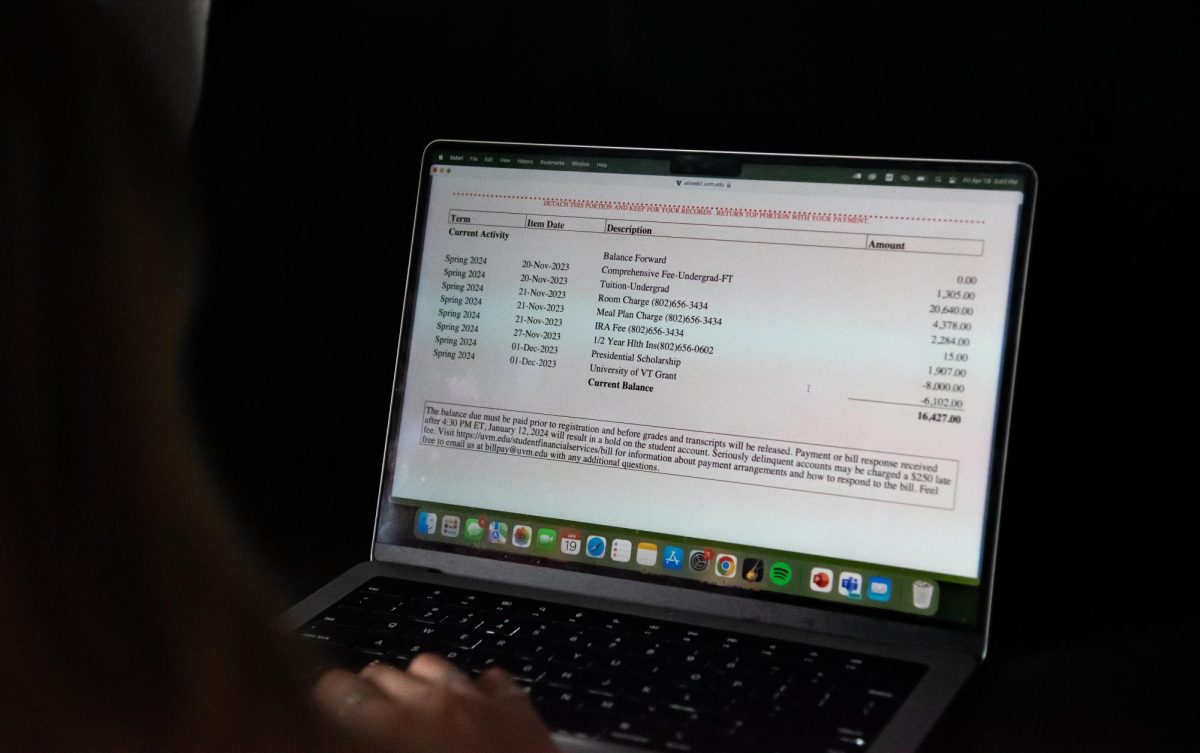Wearing fur is evil. President Fogel is ruining UVM. Accepting Jesus is the only way to avoid Hell. These are just a few of the opinions students at UVM are exposed to on campus. In a January 2008 open letter to the UVM community, Fogel himself said that the University of Vermont, and universities in general, are seen as forums for stating and debating ideas and beliefs.But do animal rights activists, students who disagree with University President Daniel Mark Fogel’s policies, and extremist religious groups have the right to express their opinons on campus?The short answer is: sometimes. As a state-funded university, UVM follows policies similar to those of the government when considering free speech. “UVM is different from, say, a private college like Middlebury,” Ellen Andersen, associate political science professor, said. “It’s a public university and follows what the government follows.” Essentially, neither Congress nor the University can restrict a student’s speech just because they do not like it or do not agree with it. Providing forums, however, is not something the University has a duty to do, Andersen said.Because of this, there was no violation of free speech on campus when the University rescinded Ben Stein’s commencement invitation to speak.”There’s nothing wrong with that,” Andersen said. “Stein has made what can be called anti-Semitic comments and the faculty believed that commencement is an honor.”The University, like the government, can also regulate speech with regards to its “time, place or manner” in any given incident. “Students have the right to endorse a candidate and can talk about it outside the library, but they can’t walk around the dorm at 4 a.m. with a bullhorn shouting who should be elected and why,” Andersen said. The particulars of time, place and manner are what got the students in trouble this past April as they staged a sit-in outside Fogel’s office in Waterman, according to Andersen. There are places people can protest, Andersen said, but the president’s office does not qualify as such a place. Andersen compares this situation to protesting at the White House: people picket outside the White House frequently, but it’s a different matter when someone blocks the West Wing. While some debate still lingers about the University’s right to arrest the students, recent controversy has arisen over the sanctions now being imposed by the Center for Student Ethics and Standards (CSES) on these students.The protesters were asked via e-mail by CSES to reflect on their actions “when the process of that expression [became] disruptive.”Students were also asked to reflect on what it means to be a member of the UVM community. Sophomore Avery Pittman was one of the 33 students arrested in April. She said that she is concerned that only four of the 33 students received the e-mail before the deadline. “I got the second e-mail telling me the deadline had passed,” Pittman said. “Their explanation was that it was a glitch.” The e-mail states that a student can choose to write an essay about the incident rather than facing harsher penalties. By choosing to do so, the student waives his or her right to a hearing. Additionally, the student must also “accept full responsibility for the violations,” according to the e-mail.Students who choose not to write the essay can choose to proceed with a formal hearing. If students do choose the essay option and the administartion is not satisfied with the results, the CSES reserves the right to have the student write the essay again, charge the student with a $100 non-compliance fee, cancel all pre-registered classes and place a hold on their student account.The e-mail also stated that the essay will “not be evaluated on its content,” but that the student cannot use the essay to “justify your own actions.” These apparent contradictions have not sat well with many members of the UVM faculty. Associate Political Science Professor Alec Ewald agrees that students arrested for the Waterman sit-in last spring should be held accountable for their actions, but does not approve of the sanctions created by CSES. There must be consequences,” Ewald said, “otherwise it’s not really disobedience.”However, some professors believe the particular sanctions created by the CSES seem to go against students’ abilities to express their true opinions.”I don’t know what a student communicating honestly with the Center of Ethics, who believed her civil disobedience was the right course of action, would write in this essay,” Ewald said. “It’s a form of forced confession.” Ewald is not the only professor who feels the treatment of the students’ rights in this matter was less than fair. In an e-mail to Troy Hedrick, the assistant director of the Office of Student Ethics & Standards, Professor Garrison Nelson, of the political science department since 1968, stated that he was dismayed at the “heavy-handed letter” to protesting students.Nelson suggested in his e-mail that UVM is already not an entirely hospitable place for the free exchange of ideas, and the sanctions “will only further diminish UVM’s reputation in that regard.”












